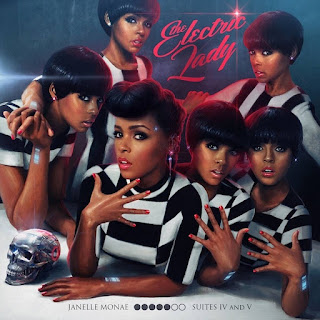Gangster Frankie (Robert Armstrong) has a fortune in cash hidden away. His merciless compatriot Jim (Edward Norris) and girlfriend Margot (Jean Gillie) want a cut.
After Margot seduces an innocent prison doctor, Craig (Herbert Rudley), the pair facilitate Frankie's escape from prison by faking his death and stealing his body from the morgue.
And then everything goes wrong...
Released by one of Hollywood's smaller studios, Monogram Pictures, Decoy is a gloriously bitter noir that benefits from its limited resources.
The low budget adds to the movie's brutish economy. There is no fat to scenes, no sugar-coating of motivation and no deviation from the characters' inevitable fall. All that matters are these characters and their obsession with obtaining Frankie's money. This world has literally no time for sentiment or doubt.
The movie opens with the ending, as the surviving participants riddle each other with bullets - watching the rest of the story play out in such limited surroundings reinforces the sense of predestination as these characters race toward their own destruction.
Confined to a small collection of sets (a doctor's surgery, an apartment, a diner), It reminded me of Detour, Edgar G. Ulmer's even more micro-noir. These are people who want to expand their horizons, but are limited by the movie around them.
In the role of Margot, British actress Jean Gillie is the movie's secret weapon.
Largely known in England for comedic roles, Gillie was married to director Jack Bernhard when this film was made. She only made a few American pictures before her return to England where she died in 1949 at the age of 33.
As the femme fatale of the piece, Margot is a remarkable. Like the movie, she is the archetype stripped to pure self-interest: tough, unrelenting and completely in control. In one sequence she coolly drives over one of her accomplices and then, when confronted by another weak-willed henchman, hands him her pistol.
When he loses his nerve, she gently takes it back and they drive away to find the money.
Even as she lies dying, Margot is still in charge. She commands the tough cop Joe Portugal (Sheldon Leonard) to give her the box filled with Frankie's loot, and clutches it to her chest.
After telling the whole story to Joe (who she has given the childish nickname 'Jojo'), she invites him to give her a kiss, and break the romantic tension that has underpinned their animosity. The taciturn cop lets his guard down and leans toward her. As he draws near, she laughs in his face. It is breathtaking.
After her death, the film's ends on a cruelly ironic gut punch.
Joe opens the box to discover it is filled with garbage. Sifting through it, he finds a dollar bill pinned to a mocking note from Frankie, declaring victory over those who betrayed him. The money will be left to the worms, just like everybody associated with it.
A short blast of ice-cold noir, Decoy is a delightfully nasty piece of work that is well worth a look.
Ossessione
Elevator to the Gallows
Odd Man Out
The low budget adds to the movie's brutish economy. There is no fat to scenes, no sugar-coating of motivation and no deviation from the characters' inevitable fall. All that matters are these characters and their obsession with obtaining Frankie's money. This world has literally no time for sentiment or doubt.
The movie opens with the ending, as the surviving participants riddle each other with bullets - watching the rest of the story play out in such limited surroundings reinforces the sense of predestination as these characters race toward their own destruction.
Confined to a small collection of sets (a doctor's surgery, an apartment, a diner), It reminded me of Detour, Edgar G. Ulmer's even more micro-noir. These are people who want to expand their horizons, but are limited by the movie around them.
Largely known in England for comedic roles, Gillie was married to director Jack Bernhard when this film was made. She only made a few American pictures before her return to England where she died in 1949 at the age of 33.
As the femme fatale of the piece, Margot is a remarkable. Like the movie, she is the archetype stripped to pure self-interest: tough, unrelenting and completely in control. In one sequence she coolly drives over one of her accomplices and then, when confronted by another weak-willed henchman, hands him her pistol.
When he loses his nerve, she gently takes it back and they drive away to find the money.
Even as she lies dying, Margot is still in charge. She commands the tough cop Joe Portugal (Sheldon Leonard) to give her the box filled with Frankie's loot, and clutches it to her chest.
After telling the whole story to Joe (who she has given the childish nickname 'Jojo'), she invites him to give her a kiss, and break the romantic tension that has underpinned their animosity. The taciturn cop lets his guard down and leans toward her. As he draws near, she laughs in his face. It is breathtaking.
After her death, the film's ends on a cruelly ironic gut punch.
Joe opens the box to discover it is filled with garbage. Sifting through it, he finds a dollar bill pinned to a mocking note from Frankie, declaring victory over those who betrayed him. The money will be left to the worms, just like everybody associated with it.
A short blast of ice-cold noir, Decoy is a delightfully nasty piece of work that is well worth a look.
Ossessione
Elevator to the Gallows
Odd Man Out
If you are new to this blog, I also co-host a podcast on James Bond, The James Bond Cocktail Hour.
You can subscribe on iTunes, or wherever you get your podcasts.














